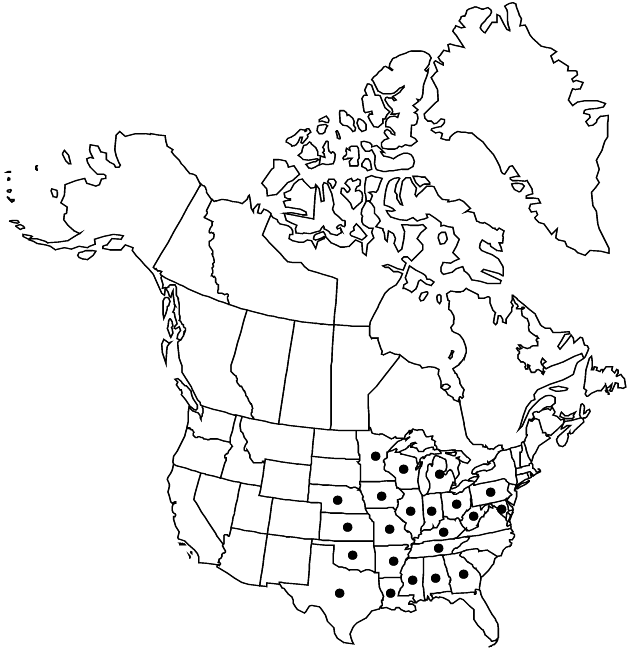Symphyotrichum drummondii var. drummondii
Plants 40–120 cm. Stems sparsely (proximally) to densely hirsute distally. Leaves firm, basal and proximal long-petiolate, petioles ± winged; proximal cauline blade bases ± cordate or truncate, sometimes obliquely. Heads in ample, paniculiform arrays with divaricate or ascending, bracteate, often racemiform branches. Peduncles ± secund, 0–4 cm, bracteate. Involucres campanulate, (3.5–)4.5–7 mm. Ray corollas usually bright blue, light purple, bluish violet, or lavender, sometimes white. Cypselae glabrous. 2n = 16, 32.
Phenology: Flowering Aug–Oct.
Habitat: Mostly shaded, loamy or rocky, mesic to dry soils, open deciduous woods, clearings, thickets, stream banks and edges of swamps, sometimes roadsides or ditches
Elevation: 10–500+ m
Distribution

Ala., Ark., Ga., Ill., Ind., Iowa, Kans., Ky., La., Md., Mich., Minn., Miss., Mo., Nebr., Ohio, Okla., Pa., Tenn., Tex., W.Va., Wis.
Discussion
Variety drummondii is often confused with Symphyotrichum urophyllum, a usually white-rayed species with erect array branches. Hybridization has been reported with S. urophyllum, as well as with S. shortii or S. undulatum (the name Aster ×finkii Rydberg possibly applies to such hybrids).
Selected References
None.